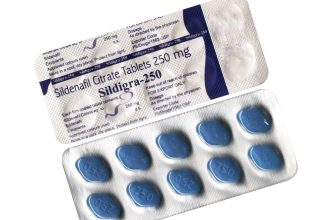Sertraline, better known as Zoloft, often proves highly beneficial for managing both anxiety and depression. Its effectiveness stems from its ability to increase serotonin levels in the brain, a neurotransmitter crucial for mood regulation. This increase helps alleviate symptoms such as persistent sadness, worry, and difficulty sleeping.
However, Zoloft isn’t a one-size-fits-all solution. Individual responses vary significantly. Factors influencing this include dosage, pre-existing conditions, and interactions with other medications. Always consult your doctor before starting Zoloft or making any adjustments to your current treatment plan. They can determine the appropriate dosage and monitor your progress.
Common side effects can include nausea, headaches, and sleep disturbances. These usually lessen as your body adjusts to the medication. More serious side effects are rare but require immediate medical attention. Open communication with your doctor is paramount throughout your treatment. They can address any concerns and help you manage potential side effects. Remember: consistent monitoring and dialogue are key for successful treatment.
While Zoloft can significantly improve symptoms, it’s often most effective when combined with therapy. Cognitive Behavioral Therapy (CBT), for example, provides valuable coping mechanisms and strategies to manage anxious thoughts and behaviors. This integrated approach – medication alongside therapy – frequently yields superior outcomes compared to treatment with medication alone.
- Zoloft for Anxiety or Depression: A Detailed Guide
- Understanding Zoloft’s Mechanism of Action
- Selective Serotonin Reuptake Inhibition (SSRI)
- Beyond Serotonin: Other Potential Mechanisms
- Zoloft for Anxiety: Effectiveness, Dosage, and Side Effects
- Zoloft for Depression: Effectiveness, Dosage, and Side Effects
- Common Side Effects and How to Manage Them
- Gastrointestinal Issues
- Other Common Side Effects
- Important Note
- When to Contact Your Doctor
- Considering Zoloft: When to Consult a Doctor and Alternative Treatments
Zoloft for Anxiety or Depression: A Detailed Guide
Consult your doctor before starting Zoloft or any medication. They will assess your specific needs and determine the appropriate dosage and treatment plan.
Zoloft, or sertraline, is a selective serotonin reuptake inhibitor (SSRI) antidepressant. It works by increasing serotonin levels in the brain, a neurotransmitter crucial for mood regulation.
For anxiety, Zoloft helps manage symptoms like excessive worry, panic attacks, and social anxiety. Expect to see gradual improvement over several weeks, with full benefits often taking several months.
For depression, Zoloft targets symptoms such as sadness, loss of interest, sleep disturbances, and fatigue. Similarly, consistent use over time is key to achieving noticeable relief.
Common side effects include nausea, headaches, sleep disturbances, and decreased libido. These usually lessen as your body adjusts. Report any severe or persistent side effects to your physician immediately.
Dosage starts low and gradually increases as needed under your doctor’s guidance. Never adjust your dosage without consulting your healthcare provider.
Zoloft interacts with certain medications. Inform your doctor about all medications, supplements, and herbal remedies you’re taking.
Discontinuing Zoloft should be done gradually, following your doctor’s instructions, to minimize potential withdrawal symptoms.
Therapy alongside medication often proves beneficial for both anxiety and depression. Your doctor can recommend a suitable therapist.
Monitor your progress regularly with your doctor. They may adjust your dosage or treatment plan based on your response.
Remember, everyone responds to medication differently. Be patient, and maintain open communication with your healthcare team.
Understanding Zoloft’s Mechanism of Action
Zoloft, or sertraline, primarily works by increasing serotonin levels in your brain. Serotonin is a neurotransmitter, a chemical messenger impacting mood, sleep, and digestion. Low serotonin is strongly linked to depression and anxiety.
Selective Serotonin Reuptake Inhibition (SSRI)
Zoloft achieves this increased serotonin by selectively inhibiting serotonin reuptake. Your brain naturally recycles serotonin; Zoloft blocks this recycling process, leaving more serotonin available to bind to receptors and influence brain activity. This process isn’t instantaneous; it takes several weeks for therapeutic effects to become noticeable.
Beyond Serotonin: Other Potential Mechanisms
While serotonin reuptake inhibition is the main mechanism, research suggests Zoloft might also influence other neurotransmitters, though to a lesser extent. These secondary effects may contribute to its overall therapeutic benefit. However, the precise role of these other interactions remains an area of ongoing research.
Zoloft for Anxiety: Effectiveness, Dosage, and Side Effects
Zoloft, or sertraline, shows considerable promise in treating anxiety disorders. Studies indicate it’s particularly helpful for generalized anxiety disorder (GAD) and panic disorder. However, individual responses vary.
Dosage typically starts low (25mg daily) and gradually increases under a doctor’s supervision, often reaching 50-200mg daily. Adjustments depend on your response and tolerance. Never change your dosage without consulting your physician.
Side effects are common, but often mild and temporary. These can include nausea, insomnia, drowsiness, dry mouth, and decreased libido. More serious, though rare, side effects require immediate medical attention. These include suicidal thoughts and serotonin syndrome (a potentially life-threatening condition involving high fever, confusion, and muscle rigidity).
Important Note: Zoloft interacts with other medications. Inform your doctor about all medications, supplements, and herbal remedies you are taking. Regular checkups with your doctor are critical to monitor your progress and adjust the dosage as needed. This information is for educational purposes only and does not substitute professional medical advice. Always consult a healthcare provider before starting or stopping any medication.
Zoloft for Depression: Effectiveness, Dosage, and Side Effects
Sertraline, the active ingredient in Zoloft, is a selective serotonin reuptake inhibitor (SSRI) frequently prescribed for depression. Studies show it helps many people significantly reduce depressive symptoms.
Your doctor will determine the appropriate dosage, typically starting with a low dose and gradually increasing it as needed. Common starting doses range from 25mg to 50mg daily. Maximum daily doses can reach 200mg, but this is rarely necessary.
While Zoloft can be highly beneficial, it’s important to be aware of potential side effects. These vary from person to person but commonly include nausea, headache, insomnia, drowsiness, and sexual dysfunction. Most side effects are mild and often subside as your body adjusts to the medication.
Severe side effects are less common but require immediate medical attention. These can include suicidal thoughts, serotonin syndrome (characterized by high fever, rapid heart rate, and muscle rigidity), and allergic reactions.
Open communication with your doctor is crucial. Report any side effects, positive or negative, to help them optimize your treatment plan. Regular monitoring will help ensure the medication’s efficacy and safety for you.
Common Side Effects and How to Manage Them
Many experience mild side effects with Zoloft. These often lessen as your body adjusts. Let’s address some common ones and how to handle them.
Gastrointestinal Issues
- Nausea: Take Zoloft with food. Smaller, more frequent meals can help. If nausea persists, talk to your doctor.
- Diarrhea or Constipation: Increase your fiber intake with fruits, vegetables, and whole grains. Drink plenty of water. If problems continue, consult your doctor.
- Dry Mouth: Sip water frequently. Chew sugar-free gum or suck on sugar-free hard candies.
Other Common Side Effects
- Sleep disturbances (insomnia or drowsiness): Take Zoloft at the same time daily, ideally in the morning to avoid nighttime sleep disruption. If drowsiness is excessive, discuss it with your doctor.
- Headaches: Stay hydrated. Over-the-counter pain relievers like acetaminophen or ibuprofen can provide relief (always check with your doctor before taking new medications). Regular exercise may also help.
- Sexual side effects: Open communication with your doctor is vital. They can discuss alternative medications or dose adjustments. There are also strategies to manage these side effects that your doctor can explain.
- Dizziness or lightheadedness: Rise slowly from a sitting or lying position. Avoid activities that require alertness if you feel dizzy.
Important Note
This information is for general knowledge and doesn’t replace professional medical advice. Always consult your doctor or pharmacist about any side effects you experience. They can help you find the best way to manage them and determine if Zoloft remains the right medication for you.
When to Contact Your Doctor
- Severe or persistent side effects
- Sudden changes in mood or behavior
- Allergic reactions (rash, swelling, difficulty breathing)
Considering Zoloft: When to Consult a Doctor and Alternative Treatments
Schedule a doctor’s appointment if you experience persistent anxiety or depression symptoms, such as uncontrollable worry, sadness, sleep disturbances, or significant changes in appetite or energy levels lasting more than two weeks. Your physician can perform a thorough evaluation, discuss your medical history, and determine if Zoloft or another treatment is appropriate.
Before starting Zoloft, discuss potential side effects with your doctor. Common side effects include nausea, insomnia, and sexual dysfunction. Rare, but serious side effects, such as serotonin syndrome, require immediate medical attention. Openly communicate any concerns you have about medication side effects.
Consider alternative treatments alongside or instead of medication. Cognitive Behavioral Therapy (CBT) teaches coping mechanisms for managing anxiety and depression. Mindfulness practices, such as meditation, can reduce stress and improve mental well-being. Regular exercise releases endorphins, naturally boosting mood. A balanced diet supports mental health, while sufficient sleep is crucial for mood regulation. Explore these options with your doctor to create a personalized treatment plan.
Remember, finding the right treatment takes time. Be patient with the process, and don’t hesitate to seek support from your doctor, therapist, or support groups. Your mental health is important, and getting help is a sign of strength.








